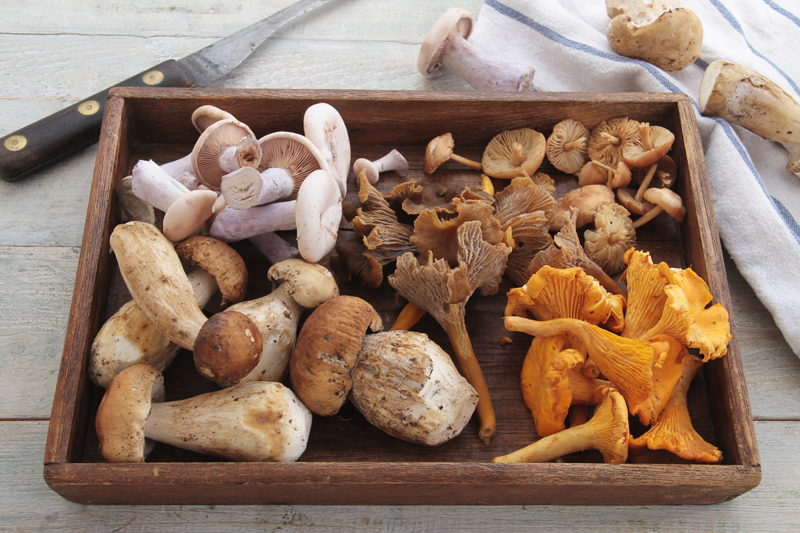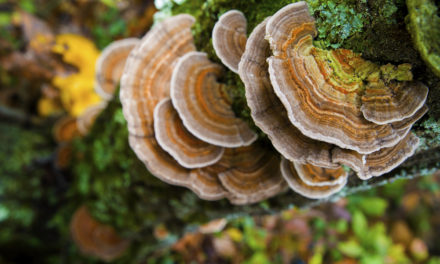So you likely know that mushrooms offer many health benefits… Boost your energy? Check. Increase your immunity? Check. Reduce inflammation? Check. All this is well and good… But how do you actually go about using mushrooms as medicine? What does this look like? And where does one begin?
Well, here are our top tips as you begin your journey with medicinal mushrooms…
1. Do your research, and choose mushrooms wisely.
When you begin using mushrooms for health, there are many things to consider. First, what are you health goals? Then,what are your current ailments? And finally, what other medications do you take? Take all these questions into consideration.
Begin this journey thoughtfully… The research on mushrooms can fill volumes. So start exploring articles and studies in order to inform yourself. A few mushrooms to consider looking into are reishi, chaga, cordyceps, turkey tail, maitake, lion’s mane, and shiitake. See which one or ones may work best for you. See what combinations are suggested, and what formulas are offered.
Also, consider involving healthcare professionals who can support and inform you. Many experts and books offer introductions to the traditional uses and modern studies of mushrooms.
2. Consume mushrooms in a form that makes sense.
In a capsule? As an extract? Or a concentrate? Or mushrooms as whole foods – raw or cooked? There are many ways to consume mushrooms. Some mushrooms are delicious additions whole to your favorite meals. Others are nearly inedible.
So choose how to consume mushrooms in a way that makes sense… Both for you and for the mushroom! Some mushrooms are best taken in capsules or as powder. Others work as a tea or tonic. While others are beneficial in their whole form.
If you do the research, then you’ll know which options will likely work best and how.
3. Buy medicinal mushrooms only from trusted sources.
Mushrooms are known to concentrate the compounds that they take in. That provides much of their potency, as vitamins and minerals. But it also means that mushrooms are more dangerous if exposed to harmful pollutants or toxins.
In addition, as many people know, some of the 300+ mushroom varieties can be harmful or deadly. This becomes an issue if a forager or grower mistakes a benign mushroom for a harmful one.
Thus, one really needs to know and trust their source of medicinal mushrooms. Whether it’s a trusted vendor, a vetted grower, or a known forager… Your source matters.
4. Adjust your intake accordingly.
After all, prepare to adjust your intake of medicinal mushrooms. This is not a one-size-fits-all solution! Because what works for one person may be different for someone else. Like any potent medicine, sometimes the amount or timing or type needs to be adjusted.
Wait a few weeks or even a few months. Perhaps you’re not noticing any response after eight weeks? Or maybe the response is not what you wanted or expected? Make note of that. Review your research. And remember: it’s okay to make a change!
5. Explore your options!
With so many benefits and varieties of mushrooms, you may need time to explore. Take your time to try different medicinal mushrooms. Try different formulas and blends. Find your way to what works for you. And then don’t stop there! The journey of using medicinal mushrooms always continues. As researchers continue to study these treasured fungi… Meanwhile growers learn new ways to cultivate them… And medical practitioners learn new ways to support people with the magic of mushrooms…
Expect that your start of using medicinal mushrooms for health benefits is just the beginning.
As you begin, here are a few resources that may help you in beginning your journey… First, learn more in general with these top ten facts about medicinal mushroomss. Then, get to know the many health benefits of mushrooms from energy boosting to immunity increasing. Finally, dive into the details with introductions to well-known species, like include reishi, chaga, cordyceps, turkey tail, maitake, lion’s mane, and shiitake. Enjoy the journey!









